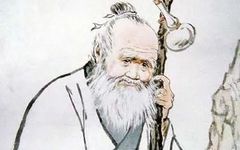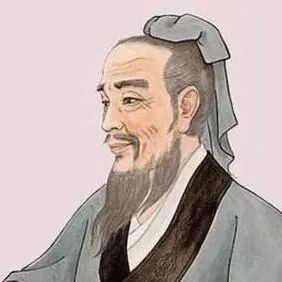
Zhang Zhongjing’s Medical Path teaches you to differentiate syndromes and provide individualized treatment plans. Follow
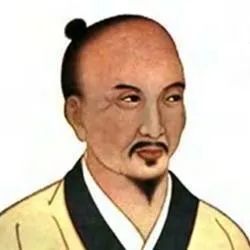
Danxi Medical Path provides in-depth TCM content and health knowledge. Follow
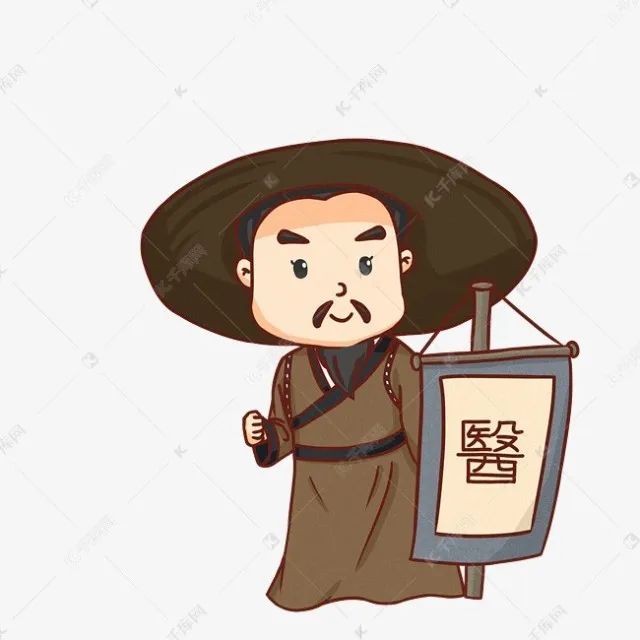
Huangdi Medical Path Practical TCM knowledge shared daily. Follow

Zhongjing Medical Path Zhongjing’s national medicine, classics endure. Follow

Elephant Medical Path Great sounds are rare, great forms are formless. Yin and Yang harmonize, the medical path merges. Follow
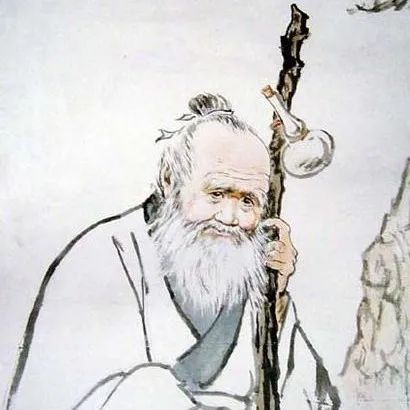
Danggui Medical Path Danggui Medical Path, the path of Qi and Huang. Follow
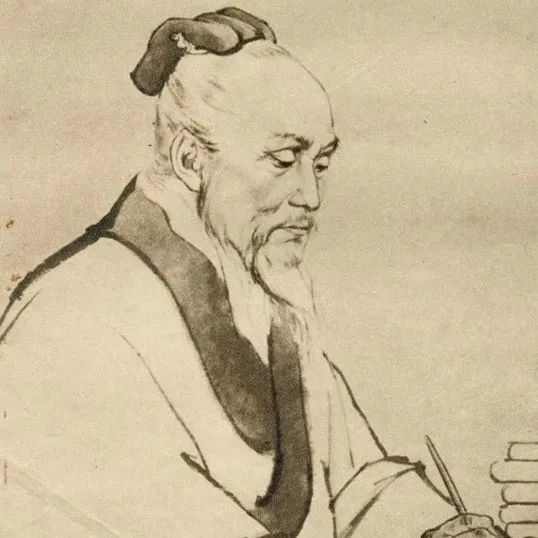
Yuan Zhi Medical Path Those who follow this account have learned skills. Follow
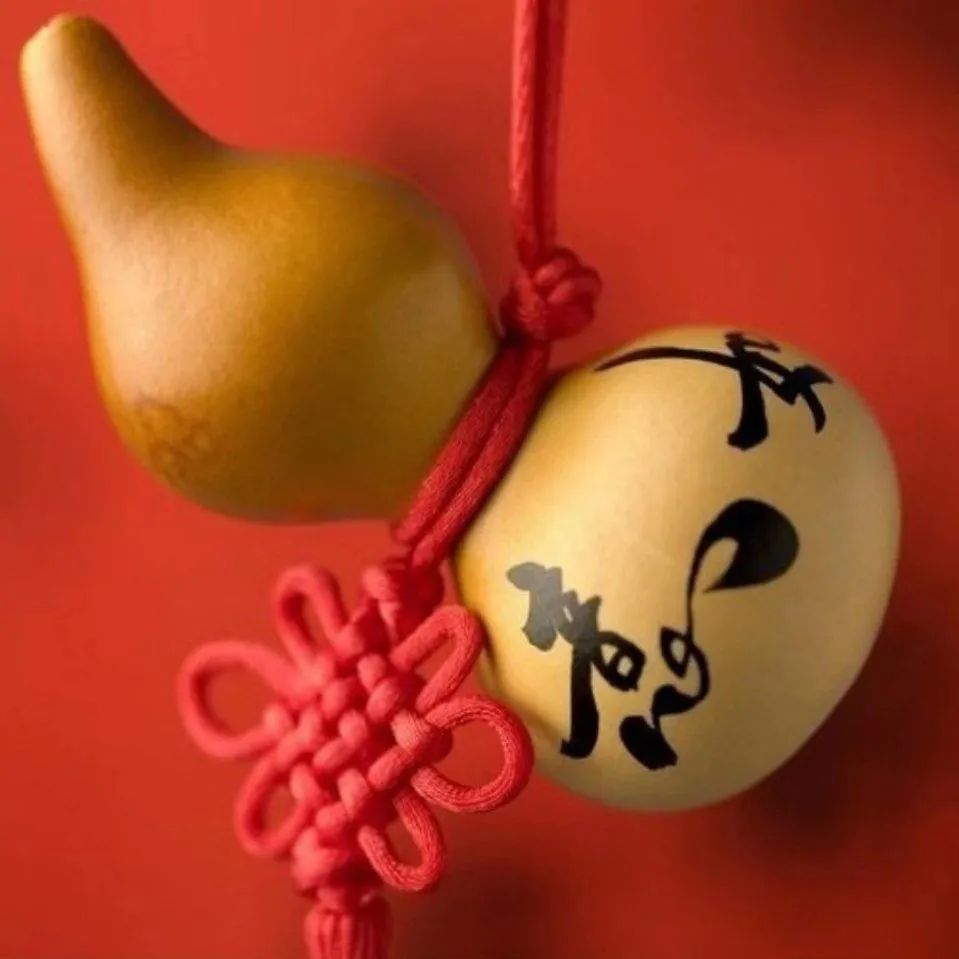
Xinglin Medical Narrative Path Those who love TCM are all here. Follow
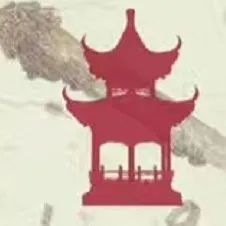
Xinglin Medical Technique Path TCM practitioners, welcome home. Follow
Click the “Follow” above, or click the public account name to follow.
The formulas for mixed cold and heat in the Treatise on Cold Damage include Chaihu Guizhi Ganjiang Decoction, Zhizi Ganjiang Decoction, Banxia Xiexin Decoction, Fuzi Xiexin Decoction, Huanglian Decoction, Wumei Pill, Mahuang Shengma Decoction, and Ganjiang Huangqin Huanglian Renshen Decoction, totaling eight formulas.
Chaihu Guizhi Ganjiang Decoction has been discussed, Zhizi Ganjiang Decoction will be briefly mentioned, while Banxia Xiexin Decoction and Gancao Xiexin Decoction can be represented by Banxia Xiexin Decoction. Below is a brief description of each formula.
Banxia Xiexin Decoction
Banxia Xiexin Decoction is a formula that combines cold and hot herbs. It is a representative formula for harmonizing the cold and heat evils of the spleen and stomach. Shengjiang Xiexin Decoction and Gancao Xiexin Decoction are variations based on it. It treats a syndrome characterized by disharmony of spleen and stomach qi, with fullness below the heart and phlegm-dampness.
Due to the presence of phlegm-dampness, it also includes symptoms of vomiting. Clinical observations indicate that this syndrome may present with fullness below the heart, vomiting, borborygmus, diarrhea, or irregular bowel movements. The occurrence of this syndrome is due to the disharmony of yin and yang in the spleen and stomach, disordered ascending and descending, and obstruction of qi in the middle jiao, leading to the generation of phlegm-dampness. Therefore, Banxia Xiexin Decoction is used to bitterly descend, disperse, harmonize the stomach, and clear phlegm as the main treatment.
Banxia Xiexin Decoction consists of Banxia (Pinellia), Huangqin (Scutellaria), Huanglian (Coptis), Renshen (Ginseng), Zhi Gancao (Honey-fried Licorice), and Dazao (Jujube). This syndrome has qi mechanism obstruction, leading to fullness in the middle jiao, and the stomach qi fails to descend, generating heat. Therefore, the formula uses the bitter cold properties of Huangqin and Huanglian to descend, while the qi of the spleen fails to ascend, generating cold, leading to borborygmus and diarrhea, thus the warming properties of Ganjiang (Dried Ginger) are used to warm it. Phlegm-dampness disturbs the stomach, causing vomiting, hence Banxia is used to descend and harmonize the stomach to stop vomiting.
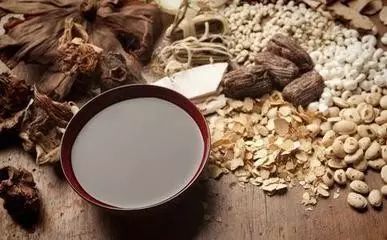
The qi of the spleen and stomach is weak, unable to regulate the ascending and descending, hence Renshen, Gancao, and Dazao are used to tonify it. This formula clears the upper and warms the lower, using both bitter and spicy properties, and employs both cold and heat to harmonize the spleen and stomach, making it the main formula for treating fullness below the heart.
【Note】 The area below the heart is a half-exterior, half-interior location (below the chest, above the abdomen), hence when there is a disease, it is appropriate to use Xiexin Decoction to harmonize. However, Xiao Chaihu Decoction treats the liver and gallbladder, while Xiexin Decoction treats the spleen and stomach. Both syndromes share the characteristic of qi mechanism obstruction, which is caused by the disharmony of yin and yang. If not harmonized and treated with other methods, the disease cannot be cured.
Especially since the “below the heart” area is the key pathway for qi’s ascent and descent, if the communication of yin and yang is obstructed, it leads to fullness. Fullness is obstruction, qi stagnates and does not move, it is neither blood nor water, and there is nothing in the middle, hence pressing it feels moist, but it is merely qi fullness.
Zhang, male, 36 years old. Has a habit of drinking, presents with fullness below the heart, occasional vomiting, and unformed stools, three to four times a day, with various treatments yielding no effect. Pulse is wiry and slippery, tongue coating is white.
Diagnosis: The syndrome is due to alcohol harming the spleen and stomach, leading to disordered ascending and descending, with phlegm generated from within. Phlegm-dampness causes the stomach qi to rebel, leading to vomiting, and spleen deficiency with cold qi results in unformed stools, with disharmony of middle qi, hence the fullness below the heart.
Prescription: Banxia 12g, Ganjiang 6g, Huangqin 6g, Huanglian 6g, Dangshen 9g, Zhi Gancao 9g, Dazao 7 pieces.
After taking one dose, the stools expelled a large amount of white, sticky phlegm, and vomiting reduced by seventy percent; after another dose, both fullness and vomiting decreased, and after two more doses, the illness was cured.
Fuzi Xiexin Decoction
Fuzi Xiexin Decoction treats heat fullness below the heart, with yang deficiency unable to protect the exterior, accompanied by symptoms of “aversion to cold and sweating.” Generally, fever easily leads to sweating, while aversion to cold does not easily lead to sweating. However, when aversion to cold is accompanied by sweating, it reflects a deficiency of defensive yang and a failure to warm.
Defensive yang is the yang qi that protects the exterior, originating from the lower jiao, transformed from the kidney’s yang qi, reaching the body surface, thus it can “warm the flesh, fill the skin, nourish the pores, and control opening and closing.” If the lower jiao’s yang is deficient, then the transformation of defensive yang is insufficient, losing its warming and protective function, leading to symptoms of aversion to cold and sweating, hence it is called the syndrome of upper heat and lower cold. The treatment uses Fuzi Xiexin Decoction to clear heat fullness and warm yang qi.
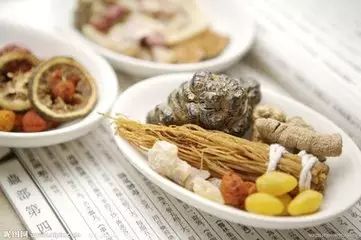
Fuzi Xiexin Decoction consists of Dahuang (Rhubarb), Huanglian (Coptis), Huangqin (Scutellaria), and Pao Fuzi (Processed Aconite). The formula uses boiling water to soak Dahuang, Huanglian, and Huangqin to treat heat fullness in the qi level, while Fuzi is boiled separately to extract its strong flavor and power to specifically tonify the deficiency of kidney yang. Although this formula uses both cold and hot herbs, the soaking of the three huangs and the separate decoction of Fuzi prioritize the support of yang while clearing heat as a secondary action.
A student from Ningxiang had an external pathogen for several months, repeatedly treated without improvement. Upon examination, he reported fullness in the chest, heat in the upper body with sweating, and aversion to wind below the waist, during the summer in June, while being wrapped up. Reviewing the previous prescriptions, they were all common clearing and draining herbs that did not address the itch. The tongue coating was light yellow, and the pulse was wiry.
Diagnosis: This is a syndrome of external heat and cold, with the pathogen occupying the spleen and stomach. If only one aspect is treated, whether treating cold with heat or heat with cold, it will not be effective. When cold and heat are used together, it should follow the method of Fuzi Xiexin Decoction.
Prescription: Fuzi Xiexin Decoction, after two days of re-examination, the patient reported that the medicine was effective, and the illness was resolved. (Quoted from “Dun Garden: Medical Cases”)
Huanglian Decoction
Huanglian Decoction syndrome belongs to the pathological changes of “cold damage with heat in the chest and evil qi in the stomach.” Heat in the chest leads to vomiting, and evil qi in the stomach leads to abdominal pain or diarrhea. The treatment with Huanglian Decoction employs both cold and warm herbs, with sweet and bitter properties to regulate the yin and yang of the upper and lower, harmonizing the evil.
Huanglian Decoction consists of Huanglian (Coptis), Zhi Gancao (Honey-fried Licorice), Ganjiang (Dried Ginger), Guizhi (Cinnamon Twig), Renshen (Ginseng), Banxia (Pinellia), and Dazao (Jujube). The formula uses Huanglian to clear heat in the chest, Ganjiang to warm the cold of the spleen and stomach, Guizhi to promote the upward movement of yang qi, Banxia to descend and stop vomiting, and Renshen, Gancao, and Dazao to benefit the stomach and calm the center, facilitating the regulation of the upper and lower, and harmonizing cold and heat yin and yang.
A patient named Li from Xuzhou presented with vomiting and diarrhea, three to four times a day, with urgency and heaviness in the abdomen, accompanied by red and white mucus. The illness persisted for a year, with no improvement despite various treatments. He came to Beijing due to work and was introduced to me for diagnosis. The pulse was wiry and slippery, and the pressure was weak, with a red tongue and white coating.
Diagnosis: This is a syndrome of mixed cold and heat, occupying the upper and lower spleen and stomach. If only one aspect is treated, whether treating cold with heat or heat with cold, it will not be effective. When cold and heat are used together, it should follow the method of Huanglian Decoction.
Prescription: Huanglian 9g, Ganjiang 9g, Guizhi 9g, Banxia 9g, Renshen 6g, Zhi Gancao 6g, Dazao 7 pieces.
After taking six doses, the year-long illness was cured.
Wumei Pill
Wumei Pill is the main formula for treating the Jueyin disease. When the disease reaches the Jueyin, the characteristics of mixed cold and heat syndrome are present. Symptoms may include “thirst, qi rising to the heart, heat in the heart, hunger without desire to eat,” etc. Due to the mixed cold and heat, with heat above and cold below, it may present as vomiting of roundworms and coldness in the hands and feet, known as the “roundworm syndrome,” which can be treated with Wumei Pill.
Wumei Pill consists of Wumei (Mume), Xixin (Asarum), Ganjiang (Dried Ginger), Huanglian (Coptis), Fuzi (Aconite), Danggui (Angelica), Shuzhizhi (Sichuan Pepper), Guizhi (Cinnamon Twig), Renshen (Ginseng), and Huangbai (Phellodendron). This formula is the main treatment for the mixed cold and heat of Jueyin and roundworm syndrome. The use of Wumei soaked in vinegar benefits the yin and harmonizes the yang, with effects of harmonizing the liver, calming the stomach, astringing yin, and stopping thirst. Fuzi, Ganjiang, and Guizhi warm the meridians and support yang to overcome cold.
Chuanjiao and Xixin are spicy and warm, capable of promoting yang and breaking yin, and can kill roundworms. Huanglian and Huangbai are bitter and cold, clearing heat and vexation, and subduing roundworms while treating vomiting. Renshen tonifies qi to strengthen the spleen, and Danggui nourishes blood to support the liver. The combination of these herbs eliminates cold and heat evils, harmonizes yin and yang, softens the liver, warms the lungs, and stops roundworms, which is the essence of the formula.
Although the formula uses both cold and hot herbs, it is primarily composed of warming herbs, and the sourness of Wumei helps to astringe and solidify, thus it can treat prolonged diarrhea due to mixed cold and heat. The use of rice and honey as sweeteners for the pills not only nourishes the stomach qi but also serves as bait to attract roundworms.
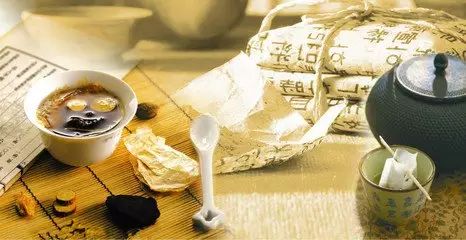
A woman named Zhou from Gansu suddenly experienced paroxysmal acute pain in the upper right abdomen, with cold limbs, profuse cold sweat, and vomiting. She had a history of roundworms. Examination revealed “worm spots” on her face, wiry and strong pulse, and a crimson tongue with brown coating. Diagnosis was made as Jueyin disease with “roundworm syndrome.” The prescription was modified from Wumei Pill to a decoction, taken in three doses. After two doses, the pain ceased and the patient felt at ease.
However, due to severe bitterness in the mouth, there was still vomiting, and she reported not having a bowel movement for several days. The treatment was switched to Dazhuo Chaihu Decoction, which resulted in the expulsion of many roundworms and stool, leading to recovery.
Mahuang Shengma Decoction
Mahuang Shengma Decoction treats exterior pathogens trapped internally, with qi mechanism obstruction, upper heat and lower cold, and disharmony of yin and yang. Due to the internal entrapment of yang pathogens, the originally floating and rapid pulse changes to a sinking and slow pulse. The pulse at the lower part is not present, indicating qi mechanism obstruction and poor pulse flow.
When the qi mechanism is obstructed, the yin and yang qi do not connect smoothly, leading to coldness in the hands and feet. If the internal entrapment of yang pathogens lingers above, it leads to upper heat with symptoms of throat discomfort and vomiting of pus and blood. Yang is trapped above and cannot govern below, hence the syndrome also presents with persistent diarrhea.
This syndrome involves both yin and yang being affected, with the differentiation of deficiency and excess, cold and heat also becoming unclear, making it a difficult syndrome to treat. However, Zhongjing’s Mahuang Shengma Decoction treats both cold and heat, expelling the yang pathogen externally while nourishing the yin of the lungs and stomach, clearing the upper and warming the lower, ensuring that yin and yang harmonize for recovery.
Mahuang Shengma Decoction consists of Mahuang (Ephedra), Shengma (Cimicifuga), Danggui (Angelica), Zhimu (Anemarrhena), Huangqin (Scutellaria), Weirui (Ophiopogon), Shaoyao (Paeonia), Tiandong (Asparagus), Guizhi (Cinnamon Twig), Fuling (Poria), Zhi Gancao (Honey-fried Licorice), Shigao (Gypsum), Baizhu (Atractylodes), and Ganjiang (Dried Ginger). The formula uses a larger dose of Mahuang and Shengma to expel the trapped yang pathogen, while Huangqin and Shigao clear the heat from the lungs and stomach. Guizhi and Ganjiang promote yang and warm the interior to dispel cold, while Danggui and Shaoyao nourish blood to harmonize yin.
Zhimu, Tiandong, and Weirui nourish yin and lower fire to harmonize yang; Gancao, Fuling, and Baizhu not only strengthen the spleen and benefit qi but also calm the stomach and harmonize the upper and lower. This formula combines both tonifying and purging herbs, allowing them to assist each other without conflict. Although it contains up to fourteen ingredients, it is not chaotic, serving a precise purpose in treating mixed cold and heat syndromes.
Li Mengru’s child had two previous throat illnesses and one case of diarrhea, both cured. Now, he suffered from a cold and heat illness that persisted for over ten days without resolution, prompting a request for diagnosis. Upon pulse examination, he had already experienced diarrhea twice, with headaches, abdominal pain, and joint pain, and his throat was completely white and rotten, with purulent phlegm mixed with blood. The six pulses were floating, and the middle pulse was absent, with heavy pressure yielding only slight resistance, making it impossible to determine the exact number. He was thirsty and needed water, with scant urination, and the pulse in the lesser yin was barely detectable.
After diagnosis, I could not immediately prescribe a formula, as the reasoning was unclear. I considered various formulas such as Pusang Decoction, Huanglian Ejiao Decoction, and Bitter Wine Decoction, but none felt appropriate. I then proposed Ganjiang Huangqin Huanglian Renshen Decoction, but still felt it was not suitable. I modified it to Xiao Chaihu Decoction for stability. However, due to rain, I stayed near Li’s residence, pondering sleeplessly, and inquired with Li’s father: How many times has the patient sweated?
He replied: There has been no sweating at all. Has he taken any laxatives? He said: He had taken purgatives three times, leading to frequent watery diarrhea, and the pulse suddenly changed to yin. I said: I understand now. This is the syndrome of Mahuang Shengma Decoction. The patient’s pulse was weak and easily moved, with a history of throat illness, indicating a constitution of lower deficiency and upper heat. The new illness was due to solar cold damage and mismanagement of purging, leading to the exterior pathogen not retreating, with internal heat descending, triggering the old throat illness, hence the throat was white and rotten, with pus and blood mixed.
The spleen was weak and damp, and due to excessive purging, it led to watery diarrhea, causing the small intestine to be unbeneficial, hence scant urination. The upper jiao was hot, leading to thirst; the exterior pathogen had not retreated, hence the symptoms of cold and heat, headache, and joint pain persisted; being trapped internally, the limbs were cold; after excessive purging, qi and blood gathered in the interior, leading to a weak yang pulse; the fluids were directed downwards, hence the yin pulse was also obstructed.
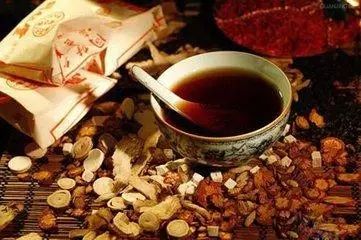
This formula includes Guizhi Decoction with added Mahuang, thus it releases the exterior and induces sweating. It also includes Fuling, Baizhu, and Ganjiang to transform water and benefit urination, thus stopping diarrhea; using Danggui to assist in blood circulation, and Huangqin, Zhimu, and Shigao to reduce inflammation and clear heat, while also generating fluids; using Shengma to relieve throat toxicity, and Yuzhu (Weirui) to eliminate pus and blood, and Tiandong to clear phlegm and pus.
Tomorrow, this formula can be taken as prescribed. Li was still concerned about the possibility of adverse reactions, fearing that the warmth of Mahuang and Guizhi would be too much, wanting to add Renshen. I said: The weak pulse and cold limbs indicate yang obstruction, not yang deficiency. Adding Renshen would not be as effective as not adding it, as the classic formula values not adding or subtracting. He ultimately recovered. (Quoted from “Chen Xunzai’s Medical Cases”)
Ganjiang Huangqin Huanglian Renshen Decoction
Ganjiang Huangqin Huanglian Renshen Decoction treats the syndrome of upper heat and lower cold, leading to symptoms of “vomiting immediately after eating” and severe diarrhea. Therefore, this formula clears the upper and warms the lower, treating both cold and heat.
Ganjiang Huangqin Huanglian Renshen Decoction consists of Ganjiang (Dried Ginger), Huangqin (Scutellaria), Huanglian (Coptis), and Renshen (Ginseng). The formula uses Huangqin and Huanglian to drain upper heat, while Ganjiang warms the spleen to eliminate cold, and Renshen tonifies the spleen to replenish deficiency. This formula employs both cold and hot herbs, with bitter and spicy properties, and Ganjiang can also guide Huangqin and Huanglian, preventing the heat evil from causing obstruction. Therefore, some commentators believe this formula also treats “fire counterflow” vomiting.
A certain male, 29 years old, during the hot summer months, indulged in cold foods, leading to alternating vomiting and diarrhea, with vomiting being more frequent than diarrhea. Accompanied by irritability and a bitter mouth. The pulse was rapid and slippery, and the tongue coating was yellow yet moist.
Diagnosis: This is heat above and cold dampness below, and with the alternating vomiting and diarrhea, how can the stomach qi not be harmed? This is a syndrome of middle deficiency with mixed cold and heat.
Prescription: Huangqin 6g, Huanglian 6g, Renshen 6g, Ganjiang 3g, and instruct to additionally pound fresh ginger juice into the decoction.
One dose was sufficient to stop vomiting and cure the illness.
The mixed cold and heat formulas in the Treatise on Cold Damage represent a significant innovation in formula science by Zhang Zhongjing. Their scientific value is very high, and we should inherit and promote them well. The seven formulas discussed above, while all serving to harmonize yin and yang and resolve the evils of cold and heat, each have their own characteristics.
For example, Banxia Xiexin Decoction harmonizes yin and yang but focuses on treating fullness; Ganjiang, Huangqin, Huanglian, and Renshen Decoction harmonizes yin and yang but focuses on treating vomiting; Wumei Pill harmonizes yin and yang but focuses on treating roundworms; Mahuang Shengma Decoction harmonizes yin and yang but focuses on inducing sweating; Fuzi Xiexin Decoction harmonizes yin and yang but focuses on supporting yang and stopping sweating. These all reflect the characteristic of TCM to treat according to the syndrome.
This article is excerpted from “Liu Duzhou’s Seven Medical Books: Fourteen Lectures on the Treatise on Cold Damage,” published by the People’s Health Publishing House. Author/Liu Duzhou, please indicate the source when reprinting.

Note: The various formulas and prescriptions mentioned in this article are for reference and learning purposes only and should not be used as prescriptions. Please do not use them blindly; this platform does not bear any responsibility for any consequences arising from this.
Copyright Statement: We emphasize sharing; the articles and images come from the internet, and the copyright belongs to the original authors. If there are any objections, please inform the editor, and we will delete them promptly.

